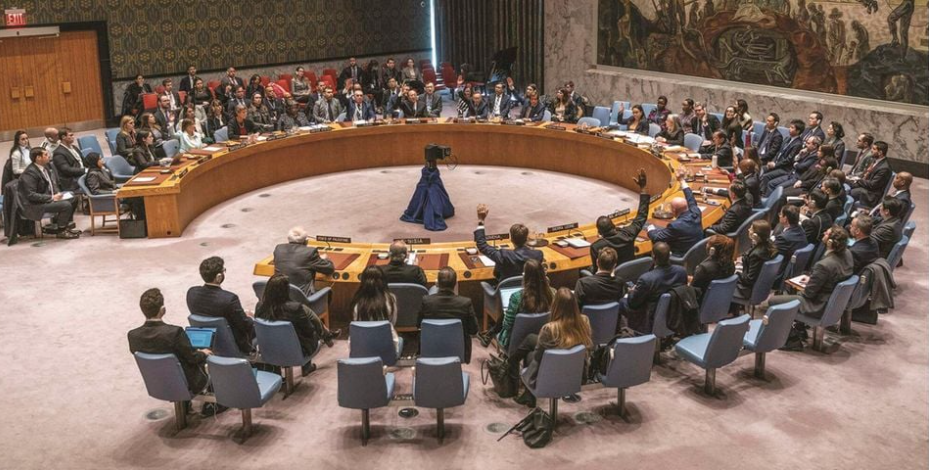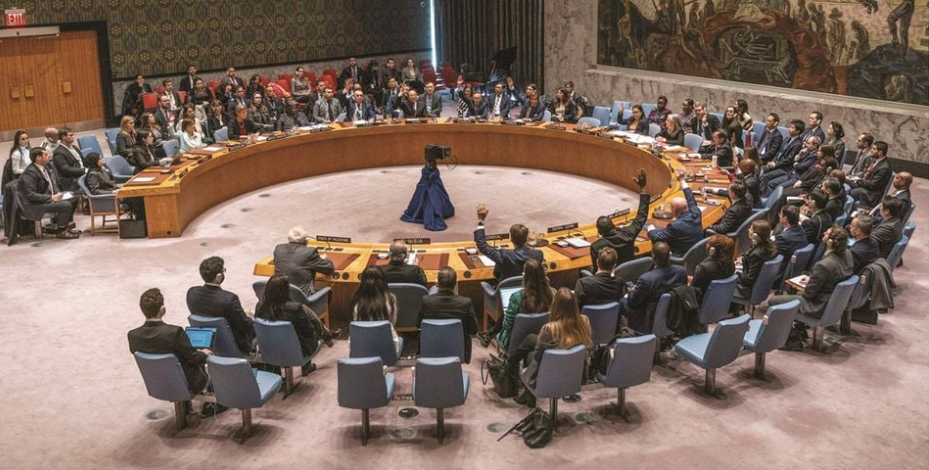
The United Nations Security Council (UNSC) recently extended sanctions on Al-Shabaab, a Somalia-based Islamist militant group, emphasizing the persistent threat the group poses to Somalia, the region, and global security. Al-Shabaab, which pledged allegiance to al-Qaeda in 2012, has carried out numerous attacks targeting civilians, security forces, and government officials in Somalia and neighboring countries like Kenya. The group’s operations include terrorist attacks, economic disruption, and undermining Somalia’s fragile government, with its influence extending across the Horn of Africa. Its resilience is fueled by illicit financing mechanisms such as extortion, charcoal smuggling, and foreign donations. The UNSC sanctions, which include asset freezes, travel bans, and arms embargoes, aim to weaken Al-Shabaab’s operational capabilities by cutting off resources essential for its activities. The decision to extend these sanctions highlights the group’s ongoing ability to conduct large-scale attacks, destabilize the region, and align with global terrorist networks.
The UNSC’s decision is informed by several critical factors. Al-Shabaab’s increasing threat level, as evidenced by attacks such as the 2022 hotel siege in Mogadishu and frequent bombings, underscores the need for sustained international pressure. The group’s regional impact, particularly its cross-border attacks in Kenya and Ethiopia, continues to undermine stability in the Horn of Africa. Furthermore, Al-Shabaab’s association with al-Qaeda amplifies its global reach, aligning its objectives with a broader terrorist agenda. By targeting the group’s illicit financing, including its exploitation of local businesses and smuggling networks, the sanctions seek to disrupt its lifeline and curtail its influence.
Sanctions have proven effective in limiting Al-Shabaab’s access to financial systems and logistics, reducing its capacity to plan attacks and maintain control over territories. However, the group has demonstrated an ability to adapt, often circumventing these measures through informal networks and exploiting weak governance in Somalia and neighboring states. Enforcement remains a challenge due to corruption, weak institutional frameworks, and the group’s reliance on non-traditional financial systems. Despite these obstacles, sanctions play a vital role in encouraging international cooperation, intelligence-sharing, and border security to combat Al-Shabaab’s activities.
The UNSC also recognizes the potential humanitarian impact of sanctions. Somalia faces severe challenges, including famine, poverty, and displacement, and measures that inadvertently affect civilians could worsen the crisis. To mitigate these risks, exemptions for humanitarian aid are included in the sanctions framework, ensuring that relief efforts can continue without obstruction. This balance aims to address Al-Shabaab’s threat while supporting Somalia’s recovery and resilience.
Regional and international actors play a crucial role in complementing UNSC sanctions. The African Union Transition Mission in Somalia (ATMIS) supports military operations against Al-Shabaab, while the Somali government leads efforts to reclaim territory and build governance capacity. Neighboring countries like Kenya and Ethiopia are key partners in securing borders and preventing cross-border terrorism. The global community, including the United States and the European Union, provides financial and logistical assistance to counterterrorism initiatives in Somalia. These collective efforts are essential to ensuring that sanctions are effective and aligned with broader counterterrorism strategies.
The UNSC’s decision to extend sanctions reflects a commitment to addressing both immediate security concerns and the underlying factors enabling Al-Shabaab’s persistence. A comprehensive approach is necessary, combining sanctions with support for Somalia’s political stability, economic development, and counter-radicalization initiatives. By addressing poverty, unemployment, and governance challenges, the international community can help reduce the conditions that allow groups like Al-Shabaab to thrive. Moreover, enhanced regional cooperation and intelligence-sharing are crucial to disrupting the group’s networks and limiting its influence.
In conclusion, the UNSC’s extension of sanctions on Al-Shabaab underscores the ongoing threat posed by the group to Somalia, the region, and global security. While sanctions are an essential tool for disrupting its operations and financing, they must be complemented by broader efforts to address the root causes of instability. The international community’s unified response sends a strong message against terrorism, highlighting the importance of sustained collaboration to achieve lasting peace and security in Somalia and beyond.

